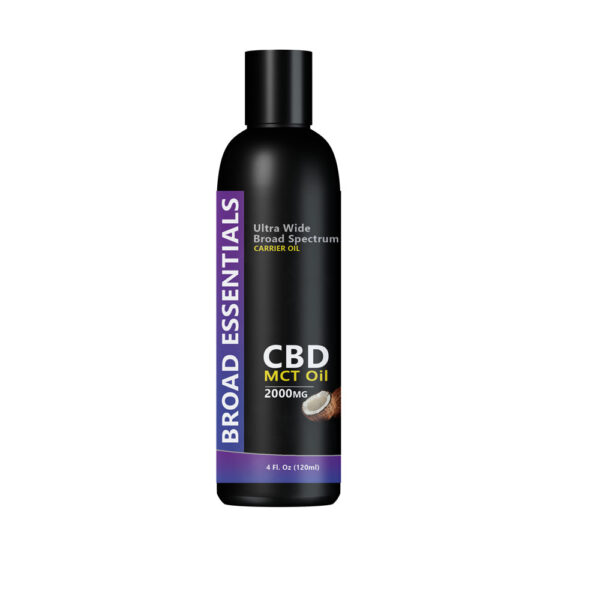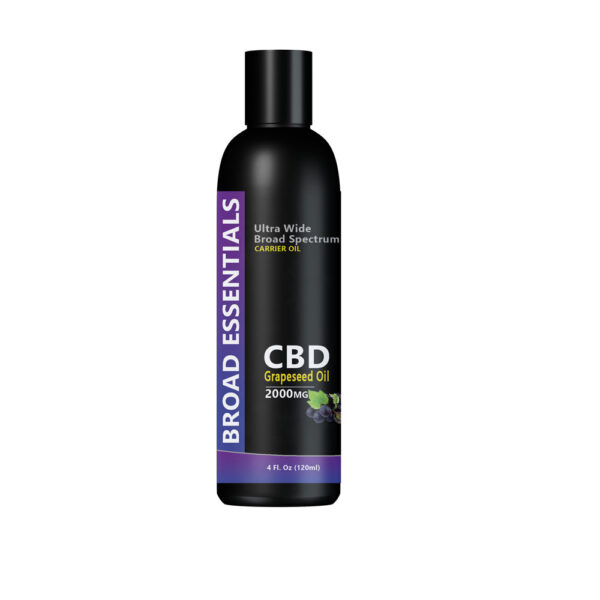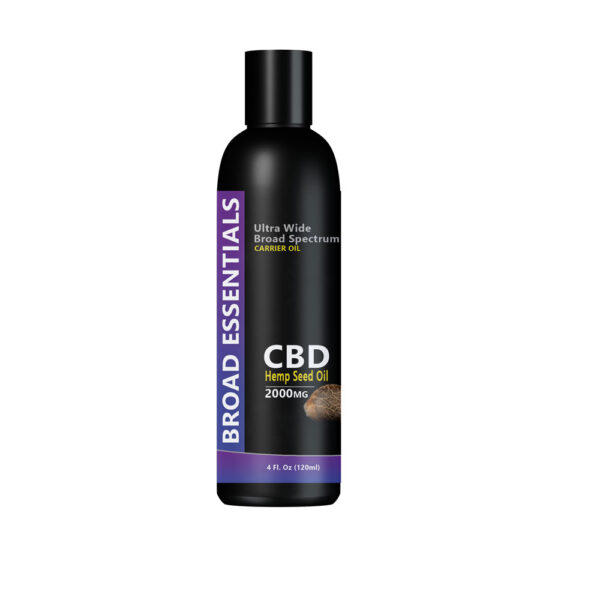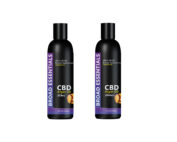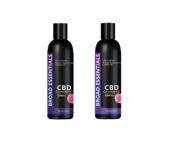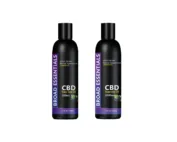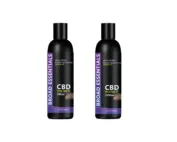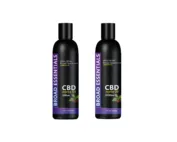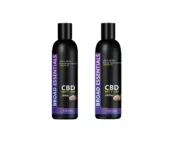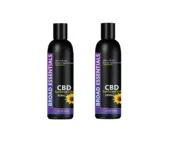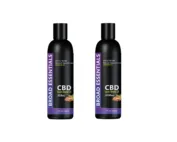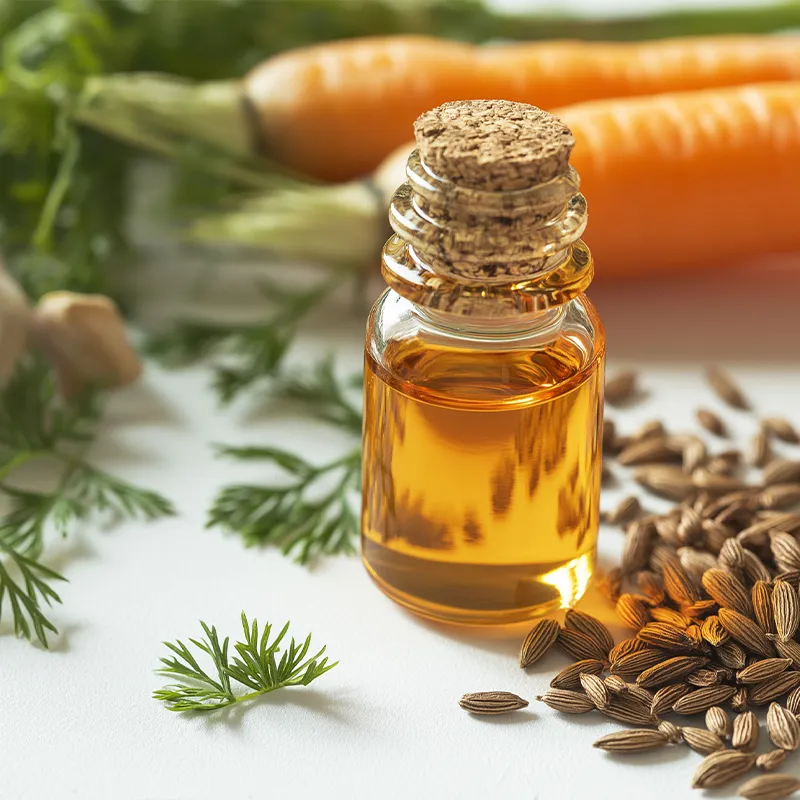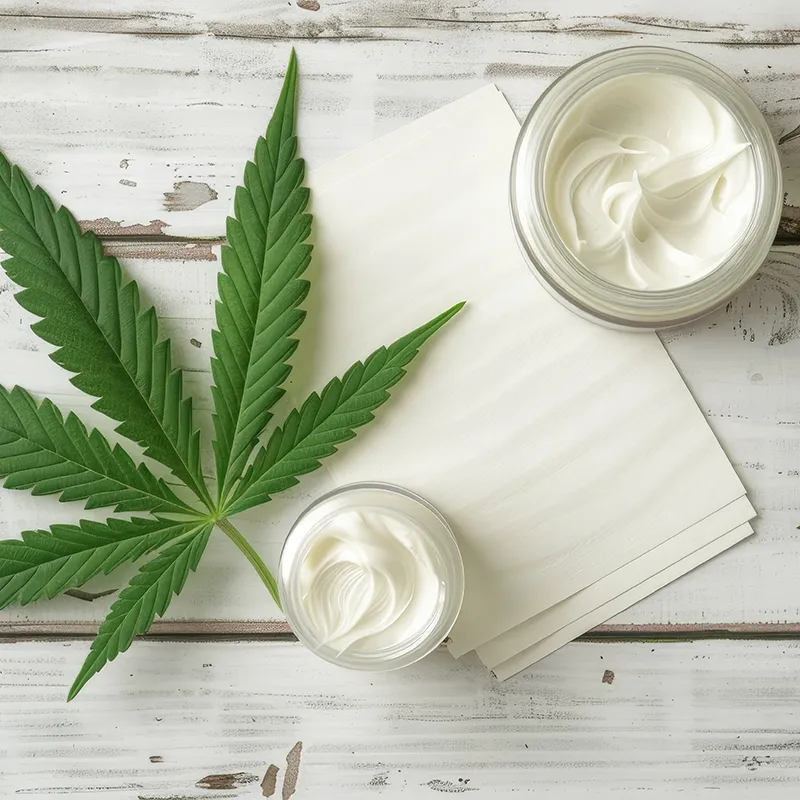The 10 best Carrier Oils for CBD, Essential Oils and CBD Essential Oils
How do you choose the best carrier oil for CBD? We use many different types of oils in our lives, from botanical oils and carrier oils to essential oils. The goal is to find the best path to carrying the beneficial compounds like CBD into our bodies so we can benefit from them whether from topical use or internal use. When trying to relieve issues whether from pain, inflammation, stress, sleep loss or mood fluctuations, a good carrier oil can help. In order to choose the best carrier oils for CBD and other cannabinoids, we need to understand what each oil does, how well it ‘carries’ other compounds into your bodies, how deep they go, how they are ingested (oral use), how quickly they absorb (topical use) and of course, how long their shelf lives are.
What do carrier oils do?
Carrier oils ‘carry’ essential oils, absolutes and other compounds into and under our skin.
While CBD and some essential oils are safer to be used neat or directly on the skin, if you want relief under the skin, they require a carrier oil or CBD carrier oil blend to penetrate into the skin to reach the tissues, muscles and joints where issues lie such as aches, pains and inflammation. Choosing the right carrier oils for your essential oils, CBD extracts, or even CBD essential oils, is well… essential. Carrier oils, also known as base oils, botanical oils or vegetable oils, are used to dilute highly concentrated essential oils and other absolutes before they are applied to the skin for massage and aromatherapy. Carrier oils are able to help other oils, such as isolate, broad-spectrum oil or full spectrum extract, that cannot naturally be absorbed by skin pass through your skin into your body so you can get the benefits internally.
Carrier oils can also be used internally
Many carrier oils are great for your body, such as Coconut Oil, Olive Oil, Grapeseed Oil and Evening Primrose. Each oil has a different composition and has different beneficial essential fatty acids, vitamins and nutrients. Oils like MCT oil, also known as Fractionated Coconut Oil, are good for our brains and bodies, boosting energy levels and increasing mental awareness, alertness and reaction time. Adding beneficial herbs, cannabinoids and other compounds to an oil in a predetermined dose can allow us to not only supplement our bodies with natural
Carrier oils help to dilute essential oils, absolutes and CBD.
Beside carrying other oils through your skin, carrier oils can also serve other purposes such as reducing volatility, also known as evaporation. Essential oils are volatile which means they evaporate at a high rate, giving off those remarkably powerful aromas that are able to fill large areas with the concentrated essence of the plant. Carrier oils also help to dilute highly concentrated oils such as essential oils which are a mixture of compounds extracted from a plant. Their concentration levels make them often too harsh for direct skin application. Essential oils used neat can cause a variety of unwanted effects such as rashes, itchiness, irritation and sometimes allergic reactions such as hives. In most cases dilution is necessary to reduce the concentration level.
What Is the Best Carrier Oil For CBD?
Carrier oils are fantastic at penetrating our upper skin layers and have a wide array of superb therapeutic attributes depending upon which you use based on their amount of essential fatty acids, lipids, nutrients and other plant derived compounds contained. Each carrier oil has unique applications and a set shelf life. Choosing the right carrier oils to pair with your hemp oil will help determine the effectiveness, penetration level, residual effects such as greasiness, as well as its own specific benefits on skin and your body.
Let’s take a look into the benefits of using each oil. When choosing carrier oils, using ones found around the house or kitchen may not be the best idea. Always look for pure grade oils and be sure to check the reviews to look for companies who may cut the oils with other, cheaper oils and fillers. Reviews are your best source of the proof. Always look for large numbers of reviews to be safe and starting with the bad ones can help determine if the reviews are fake or genuine.
1. Coconut Oil
One of the most widely used carrier oils, is coconut oil. Coconut oil comes from the fruits of the coconut and is hailed as a super-oil packed with naturally occurring antioxidants which helps to keep your skin looking youthful, as well as anti-fungal, antibacterial and anti-inflammatory properties. Coconut is spectacular for rejuvenating and nourishing your skin, nails and even hair. Coconut oil is a natural moisturizer and is fantastic at relieving dry skin. Many take coconut oil to help improve good cholesterol (HDL). It’s base of nearly 50% lauric acid give the oil a long shelf life of over 2 years.
Coconut oil is available in several forms
Unrefined Coconut Oil
Unrefined coconut oil is raw, solid and has a creamy feel. Unrefined coconut oil is often used for making balms and creams and has a familiar coconut aroma. Raw Coconut oil has a melt point of about 78 degrees.
Refined Coconut Oil
Refined coconut oil will have less of the familiar coconut aroma and is available in a couple different variations that become and stay liquid at a lower temperature than unrefined. Refined coconut oil is typically available with a 76 degree melt point and a 92 degree melt point. Depending on how low of temperature you want the product to melt at will determine which variation to use.
Fractionated Coconut Oil (MCT Oil)
Fractionated coconut oil, also known and MTC (medium-chain triglycerides) oil, is a variation of coconut that will not solidify at room temperature and does not have the coconut aroma. It has largely been broken down into medium-chain triglycerides, removing the greasiness, flavor and color. MCT oil is good for your skin as well as your body and is often used in CBD oil tinctures to minimize bitter flavor.
2. Jojoba Oil
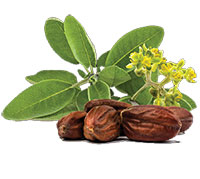
Jojoba oil is comprised of over 75% eicosenoic acid, a long omega-9 fatty acid that cannot be digested by humans. Eicosenic acid most closely resembles human sebum, so much so, our bodies cannot tell the difference. Jojoba oil is well-known as the carrier oil that is closest to mimicking the natural oil secretions of human skin. This makes it an excellent moisturizer for using on areas like the face and neck that may otherwise look oily with other carrier oils.
The oil is extracted from the seeds of the jojoba tree and has a light nutty aroma. Jojoba oil is a natural anti-fungal and works well when combined with essential oils that also have anti-fungal properties and are used for topical fungal infections.
With the longest chain of essential fatty acids than any other carrier oil and its ability to resist oxidation, jojoba oil holds a long shelf-life. Its high rate of absorption makes it one of the best carrier oils for topical CBD and essential oils on our list. Learn more about Jojoba Oil, its benefits and uses.
How to use jojoba oil:
1. Natural Make-up Remover: Stop using chemical-filled makeup removers! Jojoba oil removes makeup naturally from the face and eye area and actually nourishes the skin at the same time. Simply soak a cotton ball with the oil and use it to remove makeup, dirt and grime.
2. Cracked Feet and Hands: Soak hands and feet in warm water for 10 minutes (add your favorite essential oil from Broad Essentials to enhance relaxation or invigorate!), dry with a towel and massage in the oil.
3. Protect From Sunburn: Does your skin get red from exposure to the sun? This means your skin is getting damaged from UV ray exposure. Reduce inflammation by applying jojoba oil to affected areas.
3. Grapeseed Oil
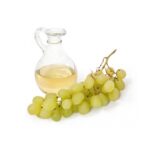
Just like the name suggests, grapeseed oil is extracted from the seeds of grapes left over during winemaking. Grape seeds are loaded with antioxidants and other beneficial nutrients, making grapeseed oil high in proteins, minerals, vitamin E and linoleic acid, which is a natural anti-inflammatory. Grapeseed oil is used for both cooking and cosmetics, but only grapeseed oil labeled as food-grade should be used in culinary applications.
Grapeseed oil does not make your skin feel greasy and is widely used in manufactured cosmetics. You can find grapeseed oil everything from sunscreens, creams, lotions, face washes and other cosmetic products. It also has antiseptic properties and is a mild astringent, making it a good carrier oil for acne-prone skin or oily skin especially when infused with CBD. A lighter oil than coconut oil, grapeseed oil moisturizes and nourishes hair without making it greasy and works well to combat dry skin scalp like dandruff. Learn more about the benefits and uses of Grapeseed Oil.
4. Hemp Seed Oil (Hemp Oil)

Obtained from the Cannabis Sativa plant, hemp seed oil has suffered a bad rep, but in actuality provides some pretty spectacular health benefits. With high concentrations of both linoleic and alpha-linolenic acids, hemp seed oil is a strong anti-inflammatory and has valuable antioxidant properties which help with skin cell regeneration and preventing premature aging.
Being non-greasy it is great to use on oily skin or for full body massages. Hemp seed oil is also a natural analgesic (pain-reliever), making it a good choice for muscle and joint pain, especially when mixed with CBD and essential oils that have analgesic properties such as CBD infused peppermint essential oil or CBD infused lavender essential oil.
5. Olive Oil
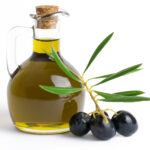
Extracted from the fruit of the olive tree, olive oil has an incredible number of health benefits and does a lot more than just cook and flavor food!
With 75% oleic acid, this popular cooking oil is excellent for your heart and cardiovascular system and can actually lower bad (LDL) cholesterol and increase good (HDL) cholesterol. It is also a potent anti-inflammatory and helps to reduce resistance to insulin.
Olive oil is a light oil with a fruity aroma that is not overpowering so it works well for blending most essential oils. Being non-greasy you can use it for almost any skin or hair type as it does not clog skin pores or leave hair locks looking greasy. It is excellent for dandruff, frizzy hair and dry skin.
When buying olive oil there are countless brands available – make sure not to buy the very cheap brands as these are more refined and may be mixed with other oils in the manufacturing process. Unrefined extra virgin olive oil is the best as no heat or chemicals are used in the extraction process and it contains the highest concentration of oleic acid.
6. Sweet Almond Oil
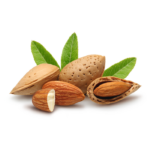
Highly rich in Vitamin E and an excellent natural antioxidant, sweet almond oil is extracted from the dried fruit of the almond tree. It’s high vitamin E content makes it an optimal choice for nourishing the skin, regenerating new skin cells and keeping in moisture, making it a great choice for those who have dry skin.
It’s natural antioxidant properties help protect from the damaging effects of the sun, and it’s high concentrations of both oleic and linoleic acids help to relieve inflammation and soothe irritated skin.
Being non-greasy and hypoallergenic, it makes an excellent massage oil (especially for infants) and its rich Vitamin E content can actually help repair damage in the collagen layer of the skin, making facial skin smooth and supple and reducing wrinkles. Sweet almond oil makes our list for one of the top oils of choice for nourishing the skin, hair and nails.
7. Avocado Oil

The fruit of the avocado tree is almost one-third oil and is one of the thickest, most luxurious oils on our list! Avocado oil is also a good oil to use for anti-aging as it contains palmitoleic acid, a type of fatty acid that is found naturally in human fatty tissues just under the skin. Since avocado oil mimics this fat, the skin absorbs it in, especially providing excellent nourishment for older, mature skin that has thinned with age.
Avocado oil contains high concentrations of oleic and linoleic fatty acids making it a potent anti-inflammatory and along with other naturally present nutrients and antioxidants as well at vitamins A, D & E, this carrier oil is ideal for irritable skin conditions such as psoriasis and eczema.
Due to its high viscosity, avocado oil dries slowly making it a good carrier oil for massage. To make it more free flowing it can be blended with another carrier oil such as olive oil or sweet almond oil.
8. Argan Oil
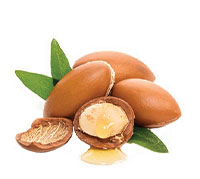
Best known for its anti-aging properties and promoting hair growth and repairing hair damage and split ends, if you haven’t heard of or used argan oil, you’re missing out on a carrier oil that is loaded with rich, nourishing properties and healing benefits! No wonder top-notch cosmetic companies are using it in their high-end formulations.
Argan oil is extracted from the fruit of the Moroccan argan tree (Argania spinosa). Rich in antioxidants, Vitamin A and E, and oleic and linoleic fatty acids, argan oil is especially beneficial for healing inflammation and damage caused by UV rays of the sun, reducing the appearance of stretch marks and scars and promoting healthy cuticles and nails.
It is one of the best oils to use for regenerating skin cells, making it an excellent choice for anti-aging salves and lotions.
How to use argan oil:
1. Fight Acne: Tired of using acne products that dry out the skin? Combine 1-2 drops of argan oil (a little goes a long way) with a drop of tea tree essential oil and dab onto problem areas. Tea tree oil has proven, wonderful antibacterial and antifungal properties that compliments argan oil’s anti-inflammatory properties beautifully, to get rid of acne and reduce scarring naturally.
2. Reduce Stretch Marks: Apply a couple of drops of warm argan oil and gently rub into the affected areas. Vitamin E and A in argan oil rejuvenate the problem areas and nourish the skin.
3. Anti-aging Moisturizer: Apply 1 drop of argan oil on your fingertips and tap into the wrinkle-prone areas of your face, such as around the nose and the temple area. Use the same gentle tapping motion and apply a drop under your eye area as well every night before you sleep. The rich Vitamin E and Vitamin A content in argan oil will help to reduce fine lines and wrinkles and impede premature aging.
4. Natural Hair Conditioner: Argan oil makes an excellent natural leave-in conditioner to bring back glow and shine, reduce frizz and promote hair growth. Depending on the length of your hair use 1 to 3 drops and massage in the scalp while running your hands through your hair and finally rub it in well at the end tips of your hair.
9. Moringa Oil
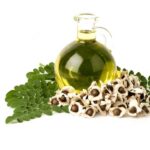
Hailing from the ‘Miracle Tree,’ people all over the world are now discovering the many benefits of moringa oil! Extracted from the seeds of the Moringa Oleifera (drumstick or horseradish) tree, the oil has been used for centuries and has some amazing medicinal properties for skin and hair health.
Containing almost 70% oleic acid, an essential omega-9 fatty acid, moringa oil contains nutrients that can strengthen cell membranes and repair damaged cells and is especially beneficial for skin conditions such as eczema, psoriasis and rosacea.
Cold-pressed moringa oil is rich in antioxidants and is a powerful anti-inflammatory. Research suggests that it inhibits oxidative stress making it excellent to use for anti-aging. The vitamin A content in the oil supports the production of collagen, helping to rejuvenate dull, sagging skin and improving the appearance of fine lines and wrinkles.
Moringa oil works wonders for the skin as a fast-absorbing natural moisturizer and can also accelerate wound healing. It makes an excellent natural conditioner to nourish the hair and scalp and can protect the hair from UV radiation and environmental damage.
How to use moringa oil:
1. Heal Scars: Apply 1-2 drops of moringa oil to scars, blemishes and minor burns. Being a natural anti-inflammatory with powerful nutrients, moringa oil naturally helps to repair scars, reduce inflammation and speed up healing.
2. Natural Hair Conditioner: Massage a little moringa oil into damp hair and leave it on as a natural hair conditioner. The oil helps eliminate dandruff, and also promotes thicker hair growth by providing essential nutrients to hair follicles.
3. Pain Reliever for Arthritis: Moringa oil’s natural proven anti-inflammatory properties work well to relieve the pain and inflammation of arthritis. Combined with powerful essential oils, its benefits are extended to provide quick relief for joint pain. Mix 8-10 drops of eucalyptus essential oil (an excellent analgesic) with 1 tsp. of moringa oil and rub into the affected areas.
Extracted from the seeds of the musk rose or Rosa moschata, rosehip seed oil contains a high concentration of linoleic and alpha-linolenic acid and is extremely high in vitamins A and E making it a highly sought after carrier oil for skin care.
In fact rosehip oil is found in many cosmetics, creams and balms for eczema, stretch marks, anti-aging and more. The fatty acids and high concentrations of vitamins in rosehip oil help to restore elasticity to the skin and improve collagen production making it a better, safer choice than chemical-filled face creams and even Botox.
When using rosehip seed oil, it’s important to note that you should buy cold-pressed rosehip oil that has not been tainted by heat and therefore preserves more nutrients.
How to use rosehip oil:
1. Make Your Skin Glow: If you’re tired of paying an arm and a leg for costly cosmetic products, try rosehip seed oil! The oil makes skin soft and supple and gives a natural glow to the skin.
2. Age Spots and Sunburn: Harsh UV rays can cause age spots (discoloration of the skin) to appear on the face. Rosehip oil contains powerful antioxidants that fight sun damage caused by free radicals. Apply rosehip oil directly to age spots. Vitamin A and essential fatty acids present in the oil further help to improve pigmentation, skin tone and skin texture. To treat inflammation caused by sunburn apply a mix of rosehip oil and coconut oil to the affected areas.
3. Scars and Skin Conditions: Essential fatty acids in rosehip oil help to regenerate the skin and lighten scars, and the Vitamin A in the oil improves skin tone and texture, making the oil highly effective to use for skin conditions like eczema and lessening the appearance of acne scars.
4. Relieve a Dry Scalp: If chemically made store bought shampoos are causing your scalp to be dry and itchy rub rosehip oil into your scalp to nourish your roots. Leave for an at least an hour and rinse off. The fatty acids in the oil help alleviate itching and nourish a dry scalp.
How to Buy Carrier Oils
When shopping for carrier oils make sure to buy cold-pressed carrier oils. Cold-pressed oils are not damaged by heat and are best to use with essential oils. Cheap carrier oils may be treated with heat and could be highly refined and contain added additives which can do more harm than good. Also make sure the bottle has the proper name of the species mentioned on the label. Example for Neem: (Azadirachta Indica). If you see the word ‘fragrance’ it almost always means there are other additives.
Always go for 100% pure, cold-pressed, unprocessed oils that are preferably labeled as ‘organic,’ ‘cold-pressed,’ and ‘Non-GMO’ – this will ensure you get the best, highest quality carrier oils that retain all their natural medicinal properties and are rich in essential fatty acids, proteins, vitamins and minerals.
Since carrier oils have a high fat content some have a limited shelf life. Store your carrier oils in a cool, dark area to extend shelf life.
Side Effects and Warnings
Essential oils and carrier oils are natural but powerful. Some people may develop an allergic reaction to any oil so it’s always best to try a little by doing a small skin patch test on your inner arm or leg (never your face or neck) to make sure you don’t have an adverse reaction.
Last Words
There is no fixed recipe when it comes to using carrier oils and essential oils and what might work for you might not work for someone else. Since we are all biochemically exclusive, it’s best to experiment with a variety of essential oils and carrier oils, pay attention to your body, and find the “personal blends” that work most optimally for you.

